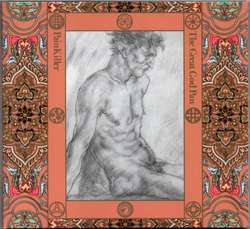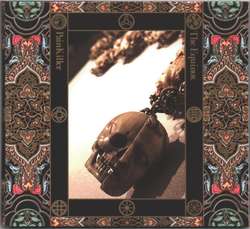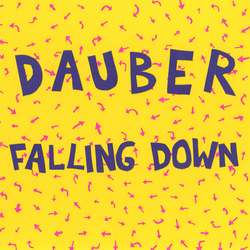Steve Reich occupies a weird place in modern music. He's one of the most-respected modern classical composers and right on the cusp of the avant-garde, winning prestigious accolades like a Pulitzer and a Grammy. Yet at the same time, he's something of a rock star in the classical world. He writes pieces that successfully connect with a younger generation of musicians, influencing artists, composers and ensembles as diverse as Sufjan Stevens, King Crimson, Brian Eno and A Silver Mt. Zion. When Reich composes, people tend to pay attention. His newest album, WTC 9/11, compiles three of his latest compositions.
The title piece, WTC 9/11, was originally written for the Kronos Quartet in 2010. It utilizes a technique Reich used on his earlier piece Different Trains, which was also originally performed by Kronos. He utilizes the notes in spoken word recordings taken from NORAD and FDNY to craft the melodies, which are played over a repetitive backing. The first movement of the piece is by far the strongest; the intense voice clips and blaring dial tone create the perfect, terse atmosphere of confusion and desolation that this piece so desperately tries to convey. It strongly recalls the uncomfortable strength of the wailing trains in movement two of Different Trains. The second movement of WTC 9/11, however, feels much less inspired. This portion of the piece feels almost a bit too empty, even by minimalism's standards. The voice clips feel disconnected and awkwardly placed. While the emotional impact is still immensely strong, as was no doubt Reich's main goal, the music itself feels a bit too dreary, plodding along a bit more slowly than most listeners will stand for. The third movement, however, does feel like a fitting finale, bringing some musical relief to the emotional turmoil Reich sought to deal with. It's an extremely effective piece on a visceral level, but musically, it's not as strong as Reich is capable of.
The second selection is the 2009 piece Mallet Quartet, performed by S? Percussion. The piece was originally written for soloist and tape, in much the same style as his recent works 2 x 5 and Double Sextet. Even though this recording lacks the novelty of actually playing against a tape, it still features the delicate rhythmic interplay that makes Reich's double ensemble tracks so intriguing. It's narrowly the strongest of the three selections on this album, harking back tonally to some of Reich's mallet-heavy pieces like Music for Eighteen Musicians or Music for Mallet Instruments, Voices and Organ.
The final and oldest piece, 2002's Dance Patterns, delves into several different short vignettes of dance melodies, alternating between the up-tempo and the largo. The rhythms are beautifully intricate without losing the accessibility of the melody that makes this piece so danceable in the first place; it's easily one of Reich's most enjoyable pieces, comparable to Vermont Counterpoint or Tehillim.
Though the title track doesn't quite live up to the gravity it was intended to have, this collection is nonetheless a strong and welcome entry in Reich's already quite vast discography. It is both a wonderful introduction to Reich's style of minimalism and a fresh listen for veterans of the genre.




